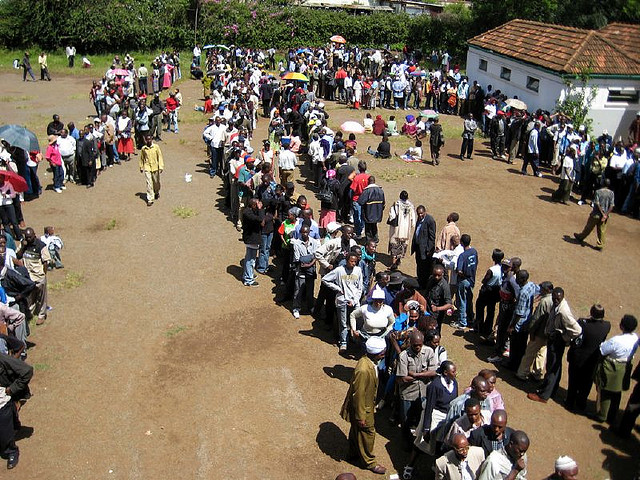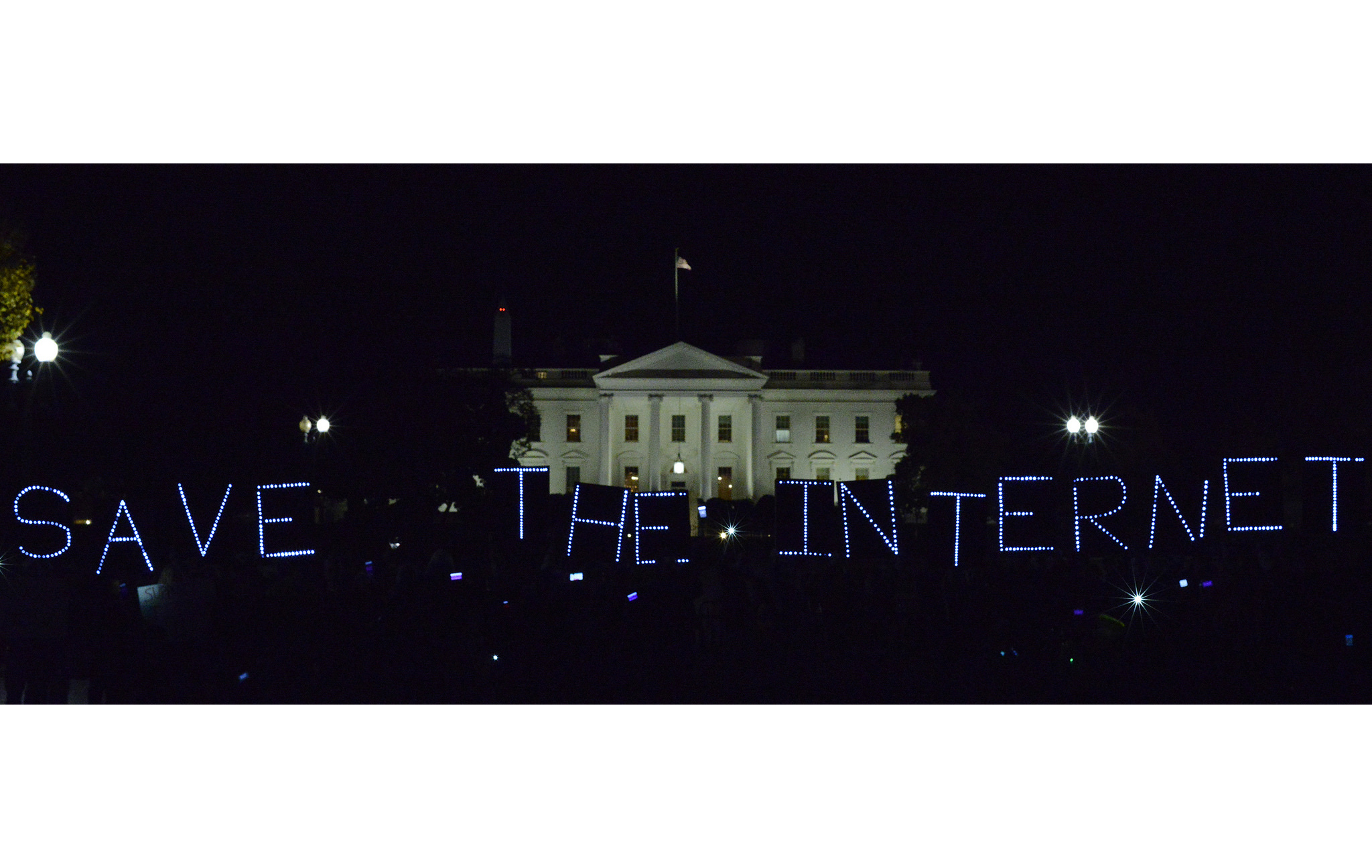
Photo Courtesy of IanSchuler via Flickr.
Between 2002 and 2007, Kenya was an African leader. In one of the most hostile areas of the world, where Islamists had taken control of neighboring Somalia, Sudan faced constant ethnic conflict, and rebel groups were attacking civilians in nearby Uganda and eastern Congo, Kenya managed to flourish. The economy grew at an average of 5.5% every year, the stock exchange quadrupled in size, more money was put into infrastructure than during the entire period from 1963-2002, and by 2006 the number of children enrolled in primary school had doubled. Despite these gains, Kenya nearly collapsed due to conflict after the elections at the end of 2007.
What happened in 2007-2008?
The election featured political rivals Raila Odinga of the Orange Democratic Movement (ODM) and the Luo ethnic group against the incumbent President Mwai Kibaki, an ethnic Kikuyu and the leader of the Party for National Unity (PNU). Polling prior to the elections showed that the presidential race was extremely close with Odinga expected to garner 45% of the countries vote to Kibaki’s 43%. On December 30th, as the final vote count came in, Kibaki took a sudden lead over Odinga and won the election by a narrow margin. Supporters of Odinga erupted in an outrage, as both national and international observers claimed that the election was flawed and that the vote count was incorrect. The most intense violence engulfed the slums of Nairobi, as well as part of the Rift Valley Province and the ODM strongholds around Lake Victoria and Nyanza Province. Over 1,000 people were killed and over 600,000 people were displaced from their homes as a result of the violence. The economy suffered immensely due to the fighting. Supply routes from Nairobi to the outermost provinces were disrupted and many people stayed home from work to fight and protest.
This fighting spurred largely from accusations of voter fraud and other irregularities, but ethnic tensions, and unrest over the economic inequality in the country caused the conflict to escalate.
As previously mentioned, Kenya’s economy grew rapidly under Kibaki’s leadership from 2002-2007. Two of the largest criticisms of Kibaki’s first term were his failure to address corruption and economic inequality. President Kibaki himself has been cited in multiple corruption scandals including the famed Anglo-Leasing scandal in which government officials stole millions of dollars in public money. Transparency International, an international anti-corruption NGO, ranked Kenya 154th out of 183 countries on its 2011 Corruption Perceptions Index with a score of 2.2, only 0.3 units higher than when Kibaki took office in 2003.
John Githongo, the anti-corruption leader who exposed the aforementioned Anglo-Leasing scandal, expressed his opinion that the post-election violence would have been much worse if the Kenyan economy had been growing at a higher rate than it was. He proposed this idea at an event in 2011 where he blamed increasing income inequality as a factor that caused post election violence to escalate. As GDP grew so quickly, income was dispersed unevenly, creating a large and widening gap between the rich and poor.
Kikuyus make up the most populous ethnic group in Kenya, comprising over 17% of the population. They have been the most prominent ethnic group in the country’s political landscape since independence in 1963. Because of this, many Kenyans who identify as Luo or Kalenjin saw an Odinga victory as a way for for their smaller ethnic groups to be represented. When Odinga was denied the victory that so many of his supporters had hoped for, ethnic differences evolved into violent grievances.
Will 2013 be different?
If we acknowledge the three factors identified above that contributed to escalating the violence in 2008 – economic inequality, corruption, and ethnic tensions – it is important to then consider how the landscape has changed in the years leading up to the coming elections.
The 2013 Presidential elections, set for March 4th, will once again feature Raila Odinga; this time as the favorite with Uhuru Kenyatta as Odinga’s biggest threat. Kenyatta, whose first name means “freedom” in Swahili, is the son of Kenya’s first president Jomo Kenyatta. He is the current Deputy Prime Minister, the leader of The National Alliance (TNA) party, and a member of the Kikuyu tribe. Despite being accused of organizing violence in the Rift Valley Province after the 2007 elections he still enjoys a large amount of support from the general population. In order for Kenyatta to overtake Odinga in March, he will need to mobilize the Kikuyu population to vote for him.
In another election that will undoubtedly be framed around ethnic differences, the politicization of these perceived differences could amplify longstanding tensions. Hopefully this time around the candidates, civil society, security forces, and the media will aim to foster post-election unity, rather than division. Since Kenyatta has been indicted by the ICC on charges of crimes against humanity for his role in the 2007/2008 violence, any noticeable lead of his could cause Odinga supporters to react as strongly as they did in 2007. At the same time there is fear that renewed violence may kick off if Kenyatta, and his running mate William Ruto (also indicted by the ICC) are barred from running.
Aside from the potentially vulnerable ethnic tensity in Kenya, the country has not seen any notable positive changes in economic equality. The 2011-2012 drought in the Horn of Africa limited agricultural output in the rural northern parts of the country and decimated pastoralists’ herds of livestock. In the capital city of Nairobi, the largest slum in Africa is only miles away from the wealthiest neighborhoods in the city. Discontent in the major slums over poverty and inequality will likely not cause post-election violence on its own, but it may cause any election-related violence to escalate as it did in 2007/2008.
Beyond alleged ballot stuffing and voter fraud, the police force was a political force that leaned heavily on the side of Kibaki and the PNU in 2007. In its 2008 report titled Ballots to Bullets, Human Rights Watch accused the Kenyan police force of arbitrary killings, noting that, “ …142 individual cases of police shooting…does not begin to capture the scale of those killed and injured by police officers.”
The level of professionalism and neutrality that the police force shows in 2013 will go a long way in either discouraging or furthering violence. If police officers act lawfully and are neutral to all parties and groups, it will benefit the country in two ways. Primarily, it will act to stop the escalation of violence and if violence escalates, it will help to put it down. If the police do not act impartially, this will certainly anger the voters. They will see the police force as a corrupt body of the government and may act on their realization with violence.
There will be other factors that determine the post-election environment in Kenya, including the role that civil society leaders and the candidates themselves play in promoting peace. It is crucial that the candidates foster unity in their public speeches and turn attention away from tribal differences. In order for peace to prevail, the candidates must advocate identifying primarily as Kenyans, rather than Luo, Kikuyu, Kamba, Kalenjin, or Somali. They must convey the importance of voting for Kenya, rather than voting along ethnic lines. This may be easier said than done, but no Kenyan wants to see a repeat of what happened in 2007/2008. If the devastating effects of the post-election violence lead to a desire for unity going forward, Kenyans can at least be thankful for that. Regardless of who wins the March election, let us hope that we all have something to be thankful for – unity, nationalism, and peace in Kenya after the winner is announced.
Sam Manning
International Affairs ’15
Githongo, John. (2011, June 30). Corruption, Impunity and Inequality: Emerging Discontent and Volatility in Africa. Brookings Institution Podcast. Podcast retrieved from http://www.brookings.edu/events/2011/06/30-inequality-africa
Kanyinga, Karuti, James D. Long, & David Ndi (2010). Was it Rigged? A Forensic Analysis of Vote Returns in Kenya’s 2007 Elections. In Karuti Kanyinga & Duncan Okello (Eds.), Tensions and Reversals in Democratic Transitions: The Kenya 2007 General Elections (374-411). Nairobi: Society for International Development/Institute for Development Studies (IDS), University of Nairobi
Cummings, Ryan, 2012, November 8). Kenya’s 2013 Election: Will History Repeat Itself? Retrieved from http://thinkafricapress.com/kenya/projections-upcoming-2013-elections
J. Githongo, personal communication to President Mwai Kibaki. November 22, 2005. Retrieved from http://news.bbc.co.uk/2/shared/bsp/hi/pdfs/09_02_06_kenya_report.pdf
Transparency International. (2011). Kenya Country Profile. Retrieved from http://www.transparency.org/country#KEN
Githongo, John. (2011, June 30). Corruption, Impunity and Inequality: Emerging Discontent and Volatility in Africa. Brookings Institution Podcast. Podcast retrieved from http://www.brookings.edu/events/2011/06/30-inequality-africa
Oparanya, Hon. Wycliffe Ambetsa. (2009). 2009 Population & Housing Census Results. Retrieved from http://www.knbs.or.ke/Census%20Results/Presentation%20by%20Minister%20for%20Planning%20revised.pdf
Interview with Kenyan Political Scientist Cyprian Nyamwamu. June 10, 2011.
Human Rights Watch. (March, 2008). Ballots to Bullets: Organized Political Violence and Kenya’s Crisis of Governance. Retrieved from http://www.hrw.org/reports/2008/kenya0308/kenya0308web.pdf


